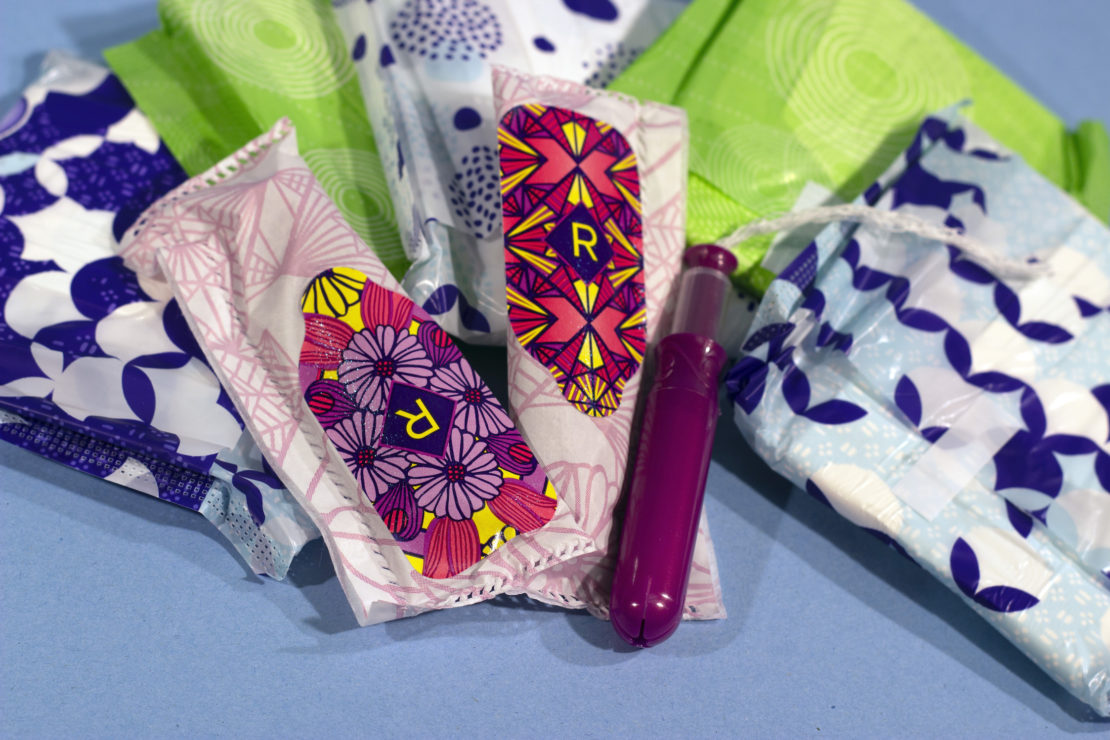UVic’s pilot project offers free menstrual products in select universal, women’s, and men’s washrooms on campus

Period poverty — the lack of access to sanitary products for people who menstruate — is a global issue. According to a survey done by Plan International Canada, 34 per cent of women-identified Canadians have at some point had to give up one essential in order to budget for menstrual products.
Over the past year, institutions in B.C. have made an effort to support those who are impacted by period poverty. In 2019, the City of Victoria made pads and tampons available in all public, city-funded washrooms, and B.C. schools were mandated by Education Minister Rob Fleming to provide students with access to menstruation products by the end of the year.
At UVic, starting in November 2019, students will have seen menstrual products in select universal, women’s, and men’s washrooms on campus. The free pads and tampons are part of a pilot project that will run until April 2020 to support students who may otherwise have to miss school because they are impacted by period poverty. Initially, products were supplied in 10 washrooms, but this has since been increased to 21.
“It’s incredibly important that all people have access to free menstrual products and that menstruating doesn’t impact our ability to function in society,” said UVSS Director of Campaigns and Community Relations Juliet Watts, who served on the project’s steering committee on behalf of students. “I think this is one step along a long road of normalizing and increasing accessibility of menstrual products.”
According to Director of Strategic Initiatives and Projects Chandra Beaveridge, the pads and tampons are provided by UVic and the university is keeping track of where products are most used. This data, as well as feedback from an online survey on the UVic website, will be used to determine where students most need products to be available. The university hopes that student feedback and usage patterns will indicate what (if any) changes need to be made before the project moves out of the pilot stage.
“Packaging and minimizing waste are a priority as part of this project,” said Beaveridge. “The products we currently supply are packaged primarily with cardboard with minimal packaging compared with other products that we have evaluated so far.”
Watts says that consultation with UVSS advocacy groups indicated that the pilot project should prioritize offering free reusable menstrual cups, which create significantly less waste than disposable products. Only pads and tampons are currently offered, but Watts hopes that the university will provide free menstrual cups in the future.
The UVSS Gender Empowerment Centre already provides a range of free menstrual products at their office in room B107 in the Student Union Building. Outreach and Communications Officer Em Osborne says that the Centre will continue to do so during UVic’s pilot project.
“We provide alternative options ranging from a variety of tampons and pad styles to menstrual cups,” said Osborne. “We are also working on bringing in cloth pads.”
In planning the pilot project, UVic consulted other institutions — such as the B.C. school boards and Camosun College — who have undertaken similar initiatives. UVSS advocacy groups were also consulted.
Though UVic did not collect data prior to the beginning of the pilot project, Beaveridge says that many students have reported through the online survey that they were previously missing classes due to a lack of access to menstrual products.
Beaveridge and Watts say that feedback has been overwhelmingly positive, with students “delighted to see the dispensers” and appreciative of the trans-inclusive language surrounding the project.
Students can provide feedback through an online survey and learn which washrooms offer free menstrual products at https://uvic.ca/freemenstrualproducts.







